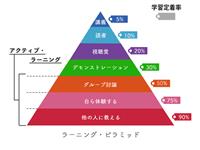Dr,Jerry L,Huxell
Organizational Behavior
Organizational Culture and
Change Management
Dr,Jerry L,Huxell
Organizational Culture
? A common perception held by the
organization’s members; a system of
shared meaning
– Innovation and risk taking
– Attention to detail
– Outcome,people or team orientation
– Aggressiveness
– Stability
Dr,Jerry L,Huxell
Strong Culture
? Core values are the primary or dominant
values that are accepted throughout the
organization
? A strong culture is one in which the core
values are intensely held and widely
shared
Dr,Jerry L,Huxell
Types of Organizational Cultures
? Bureaucratic - values formality
? Clan – values tradition and loyalty
? Entrepreneurial – values risk-taking and
creativity
? Market – values goal achievement
Dr,Jerry L,Huxell
What Do Cultures Do?
? Defines the boundary between one
organization and others
? Conveys a sense of identity for its
members
? Facilitates the generation of group
commitment
? Acts as a barrier to change,diversity,and
acquisitions and mergers
Dr,Jerry L,Huxell
Keeping the Culture Alive
? Selection – will the person fit
? Top Management – set behavioral norms
? Socialization
– Pre-arrival stage
– Encounter stage
– Adjustment stage
Dr,Jerry L,Huxell
Transmitting the Culture
? Stories
? Rituals
? Material symbols
? Language or jargon
? Ceremonies
? Statement of principles
Dr,Jerry L,Huxell
Ethical Culture
? Be a visible role model
? Communicate ethical expectations
? Provide ethical training
? Visibly reward ethical acts
? Visibly punish unethical acts
? Provide protective mechanisms
Dr,Jerry L,Huxell
Customer-Responsive Culture
? Selection
? Training and socialization
? Structural design
? Empowerment
? Leadership
? Performance evaluation
? Reward system
Dr,Jerry L,Huxell
Charles Darwin
?,It is not the strongest of the species that
survives,nor the most intelligent; it is the
one that is most adaptable to change.
? Survival or success depends on the ability
to adapt and compete in today’s ever-
changing world – change or die.
Dr,Jerry L,Huxell
Common Roadblocks to Change
? Upsets the political system
? Conflicts with vested interests
? Limited power or resources of managers
? Rigid bureaucracy or organization
? Management is looking for quick fixes
? Changes are hard to sustain
Dr,Jerry L,Huxell
Forces for Change
? Nature of workforce
? Advances in technology
? Economic shocks
? Increase and intensity of competition
? Social trends
? World politics
Dr,Jerry L,Huxell
Organizational Change Requires
? Personal commitment of top management
? Dissatisfaction with status quo
? Shared vision of the future
? Enthusiastic communication
? Critical mass of support
? Trust in leaders of the change
Dr,Jerry L,Huxell
Goals of Planned Change
? Improve the ability of the organization to
adapt to changes in the environment
? Change the behavior of individuals and
groups in the organization
Dr,Jerry L,Huxell
Theories E and O
? Theory E – involves heavy use of
economic incentives,drastic layoffs,
downsizing and restructuring,Shareholder
value is the key
? Theory O – geared toward building up the
organizational culture,employee
behaviors,attitudes,capabilities and
commitment,Ability to learn is the key
Dr,Jerry L,Huxell
Resistance to Change
? Organizational – power and conflict,
functional orientations,structures,
resource limitations,and culture
? Group – norms,cohesiveness,groupthink,
escalation of commitment
? Individual – uncertainty,fear of the
unknown,insecurity,perception,and
habits
Dr,Jerry L,Huxell
Lewin’s Field Force Analysis
? Unfreeze – determine driving forces and
resisting forces
? Experiment with different ways
? Freeze – lock the change
Dr,Jerry L,Huxell
Contextual Features
? Time – how fast
? Scope – what degree
? Preservation – what to maintain
? Diversity – how homogeneous
? Capability – how much experience
? Capacity – how much resources
? Readiness – how much resistance
Dr,Jerry L,Huxell
Tactics to Overcome Resistance
? Empathy
? Education and communication
? Participation
? Facilitation and support
? Negotiation
? Manipulation and cooptation
? Coercion
Dr,Jerry L,Huxell
Guidelines to Implement Change
? Determine who will resist the change
? Build a coalition of support
? Fill key positions with change agents
? Use task forces to implement the change
? Make dramatic,symbolic changes
? Show success as soon as possible
? Monitor progress
Dr,Jerry L,Huxell
Organizational Development (OD)
? A system-wide process of data collection,
diagnosis,action,planning,intervention,
and evaluation
? Its goal is to create adaptive organizations
capable of repeatedly transforming and
reinventing themselves
Dr,Jerry L,Huxell
OD Techniques
? Survey feedback approach
? Counseling
? Facilitation
? Sensitivity training
? Process consultation
? Team building interventions
? Appreciative inquiry
Dr,Jerry L,Huxell
Learning Organization
? An organization that is skilled at creating,
acquiring,and transferring knowledge and
at modifying its behavior to reflect new
knowledge and insights
– Systematic problem solving
– Experimentation
– Learn from past and others experiences
– Transfer knowledge quickly
Dr,Jerry L,Huxell
Knowledge Management
? A process of organizing and distributing an
organization’s collective wisdom so that
the right information gets to the right
people at the right time
– Intellectual assets are as important as
physical assets
– When people leave,their knowledge and
experience also leaves
Dr,Jerry L,Huxell
Stress
? A dynamic condition in which an individual
is confronted with an opportunity,
constraint,or demand related to what he
or she desires and from which the
outcome is perceived to be uncertain and
important
Dr,Jerry L,Huxell
Potential Sources of Stress
? Environmental factors – economic,political
or technological uncertainty
? Organizational factors – task,role and
interpersonal demands; organizational
structure; or leadership
? Individual factors – family,economic or
personality problems
Dr,Jerry L,Huxell
Individual Differences
? Perception
? Job experience
? Social support
? Belief in locus of control
? Self-efficacy
? Hostility
Dr,Jerry L,Huxell
Consequences of Stress
? Physiological symptoms – headaches,
high blood pressure,heart disease
? Psychological symptoms – anxiety,
depression,and decrease in job
satisfaction
? Behavior symptoms – productivity,
absenteeism and turnover,sleep,alcohol
Dr,Jerry L,Huxell
Managing Stress - Individual
? Implementing time management
techniques
? Increasing physical exercise
? Relaxation training - meditation
? Expanding social support network
Dr,Jerry L,Huxell
Managing Stress - Organizational
? Improved personnel selection and training
? Realistic goal setting
? Redesigning of jobs
? Increased employee involvement
? Improved organizational communication
? Employee sabbaticals
? Corporate wellness programs
Organizational Behavior
Organizational Culture and
Change Management
Dr,Jerry L,Huxell
Organizational Culture
? A common perception held by the
organization’s members; a system of
shared meaning
– Innovation and risk taking
– Attention to detail
– Outcome,people or team orientation
– Aggressiveness
– Stability
Dr,Jerry L,Huxell
Strong Culture
? Core values are the primary or dominant
values that are accepted throughout the
organization
? A strong culture is one in which the core
values are intensely held and widely
shared
Dr,Jerry L,Huxell
Types of Organizational Cultures
? Bureaucratic - values formality
? Clan – values tradition and loyalty
? Entrepreneurial – values risk-taking and
creativity
? Market – values goal achievement
Dr,Jerry L,Huxell
What Do Cultures Do?
? Defines the boundary between one
organization and others
? Conveys a sense of identity for its
members
? Facilitates the generation of group
commitment
? Acts as a barrier to change,diversity,and
acquisitions and mergers
Dr,Jerry L,Huxell
Keeping the Culture Alive
? Selection – will the person fit
? Top Management – set behavioral norms
? Socialization
– Pre-arrival stage
– Encounter stage
– Adjustment stage
Dr,Jerry L,Huxell
Transmitting the Culture
? Stories
? Rituals
? Material symbols
? Language or jargon
? Ceremonies
? Statement of principles
Dr,Jerry L,Huxell
Ethical Culture
? Be a visible role model
? Communicate ethical expectations
? Provide ethical training
? Visibly reward ethical acts
? Visibly punish unethical acts
? Provide protective mechanisms
Dr,Jerry L,Huxell
Customer-Responsive Culture
? Selection
? Training and socialization
? Structural design
? Empowerment
? Leadership
? Performance evaluation
? Reward system
Dr,Jerry L,Huxell
Charles Darwin
?,It is not the strongest of the species that
survives,nor the most intelligent; it is the
one that is most adaptable to change.
? Survival or success depends on the ability
to adapt and compete in today’s ever-
changing world – change or die.
Dr,Jerry L,Huxell
Common Roadblocks to Change
? Upsets the political system
? Conflicts with vested interests
? Limited power or resources of managers
? Rigid bureaucracy or organization
? Management is looking for quick fixes
? Changes are hard to sustain
Dr,Jerry L,Huxell
Forces for Change
? Nature of workforce
? Advances in technology
? Economic shocks
? Increase and intensity of competition
? Social trends
? World politics
Dr,Jerry L,Huxell
Organizational Change Requires
? Personal commitment of top management
? Dissatisfaction with status quo
? Shared vision of the future
? Enthusiastic communication
? Critical mass of support
? Trust in leaders of the change
Dr,Jerry L,Huxell
Goals of Planned Change
? Improve the ability of the organization to
adapt to changes in the environment
? Change the behavior of individuals and
groups in the organization
Dr,Jerry L,Huxell
Theories E and O
? Theory E – involves heavy use of
economic incentives,drastic layoffs,
downsizing and restructuring,Shareholder
value is the key
? Theory O – geared toward building up the
organizational culture,employee
behaviors,attitudes,capabilities and
commitment,Ability to learn is the key
Dr,Jerry L,Huxell
Resistance to Change
? Organizational – power and conflict,
functional orientations,structures,
resource limitations,and culture
? Group – norms,cohesiveness,groupthink,
escalation of commitment
? Individual – uncertainty,fear of the
unknown,insecurity,perception,and
habits
Dr,Jerry L,Huxell
Lewin’s Field Force Analysis
? Unfreeze – determine driving forces and
resisting forces
? Experiment with different ways
? Freeze – lock the change
Dr,Jerry L,Huxell
Contextual Features
? Time – how fast
? Scope – what degree
? Preservation – what to maintain
? Diversity – how homogeneous
? Capability – how much experience
? Capacity – how much resources
? Readiness – how much resistance
Dr,Jerry L,Huxell
Tactics to Overcome Resistance
? Empathy
? Education and communication
? Participation
? Facilitation and support
? Negotiation
? Manipulation and cooptation
? Coercion
Dr,Jerry L,Huxell
Guidelines to Implement Change
? Determine who will resist the change
? Build a coalition of support
? Fill key positions with change agents
? Use task forces to implement the change
? Make dramatic,symbolic changes
? Show success as soon as possible
? Monitor progress
Dr,Jerry L,Huxell
Organizational Development (OD)
? A system-wide process of data collection,
diagnosis,action,planning,intervention,
and evaluation
? Its goal is to create adaptive organizations
capable of repeatedly transforming and
reinventing themselves
Dr,Jerry L,Huxell
OD Techniques
? Survey feedback approach
? Counseling
? Facilitation
? Sensitivity training
? Process consultation
? Team building interventions
? Appreciative inquiry
Dr,Jerry L,Huxell
Learning Organization
? An organization that is skilled at creating,
acquiring,and transferring knowledge and
at modifying its behavior to reflect new
knowledge and insights
– Systematic problem solving
– Experimentation
– Learn from past and others experiences
– Transfer knowledge quickly
Dr,Jerry L,Huxell
Knowledge Management
? A process of organizing and distributing an
organization’s collective wisdom so that
the right information gets to the right
people at the right time
– Intellectual assets are as important as
physical assets
– When people leave,their knowledge and
experience also leaves
Dr,Jerry L,Huxell
Stress
? A dynamic condition in which an individual
is confronted with an opportunity,
constraint,or demand related to what he
or she desires and from which the
outcome is perceived to be uncertain and
important
Dr,Jerry L,Huxell
Potential Sources of Stress
? Environmental factors – economic,political
or technological uncertainty
? Organizational factors – task,role and
interpersonal demands; organizational
structure; or leadership
? Individual factors – family,economic or
personality problems
Dr,Jerry L,Huxell
Individual Differences
? Perception
? Job experience
? Social support
? Belief in locus of control
? Self-efficacy
? Hostility
Dr,Jerry L,Huxell
Consequences of Stress
? Physiological symptoms – headaches,
high blood pressure,heart disease
? Psychological symptoms – anxiety,
depression,and decrease in job
satisfaction
? Behavior symptoms – productivity,
absenteeism and turnover,sleep,alcohol
Dr,Jerry L,Huxell
Managing Stress - Individual
? Implementing time management
techniques
? Increasing physical exercise
? Relaxation training - meditation
? Expanding social support network
Dr,Jerry L,Huxell
Managing Stress - Organizational
? Improved personnel selection and training
? Realistic goal setting
? Redesigning of jobs
? Increased employee involvement
? Improved organizational communication
? Employee sabbaticals
? Corporate wellness programs



